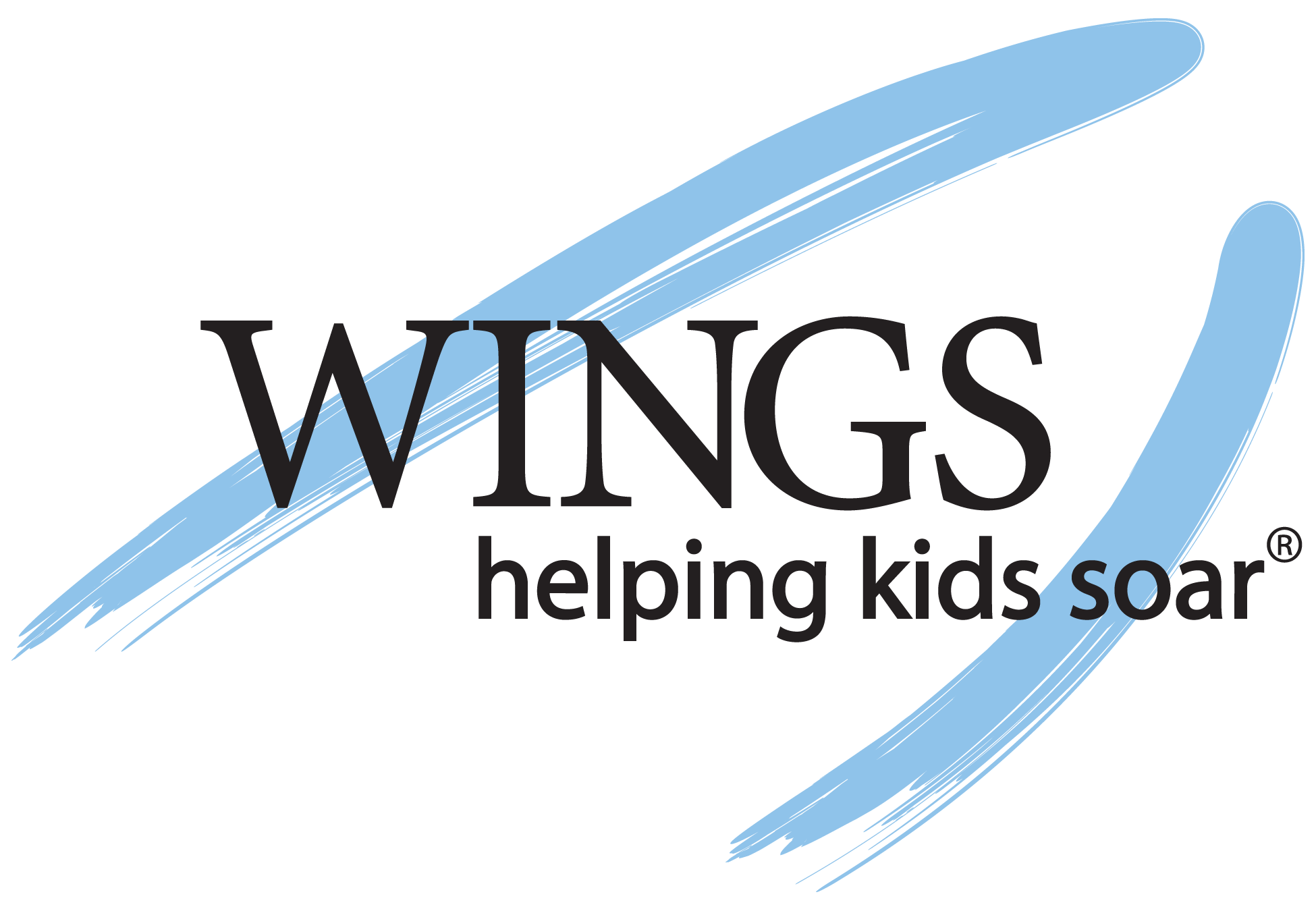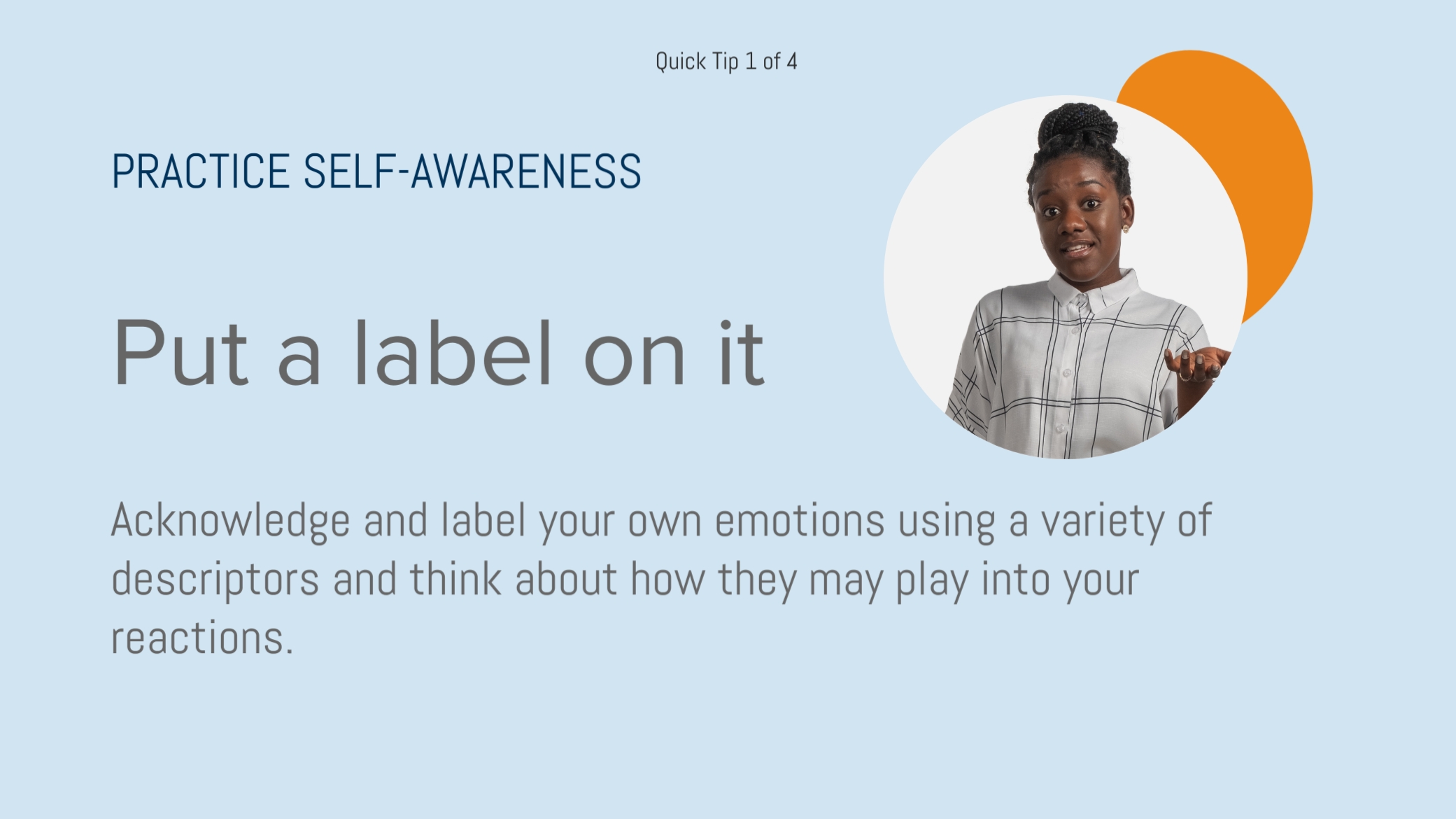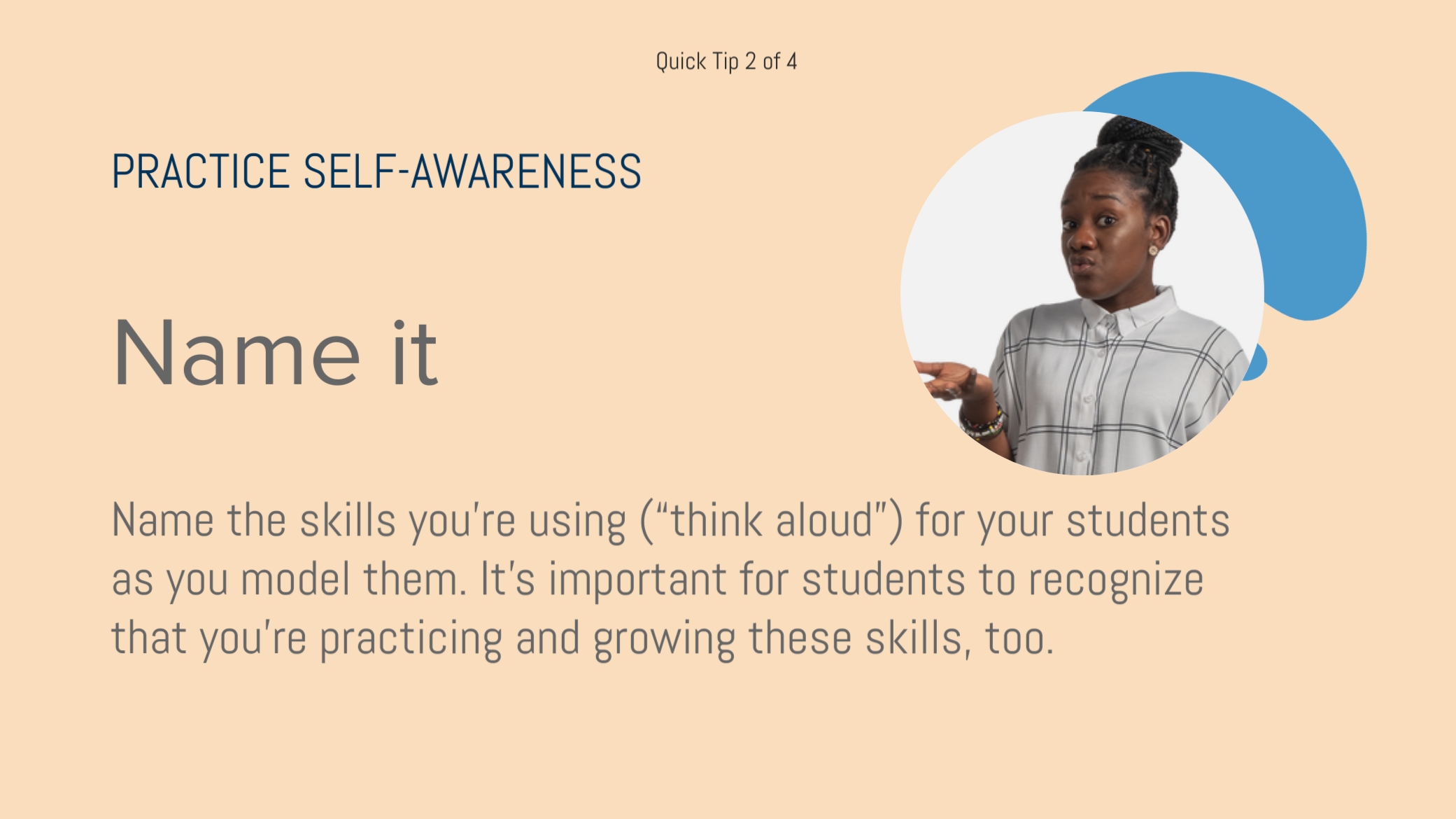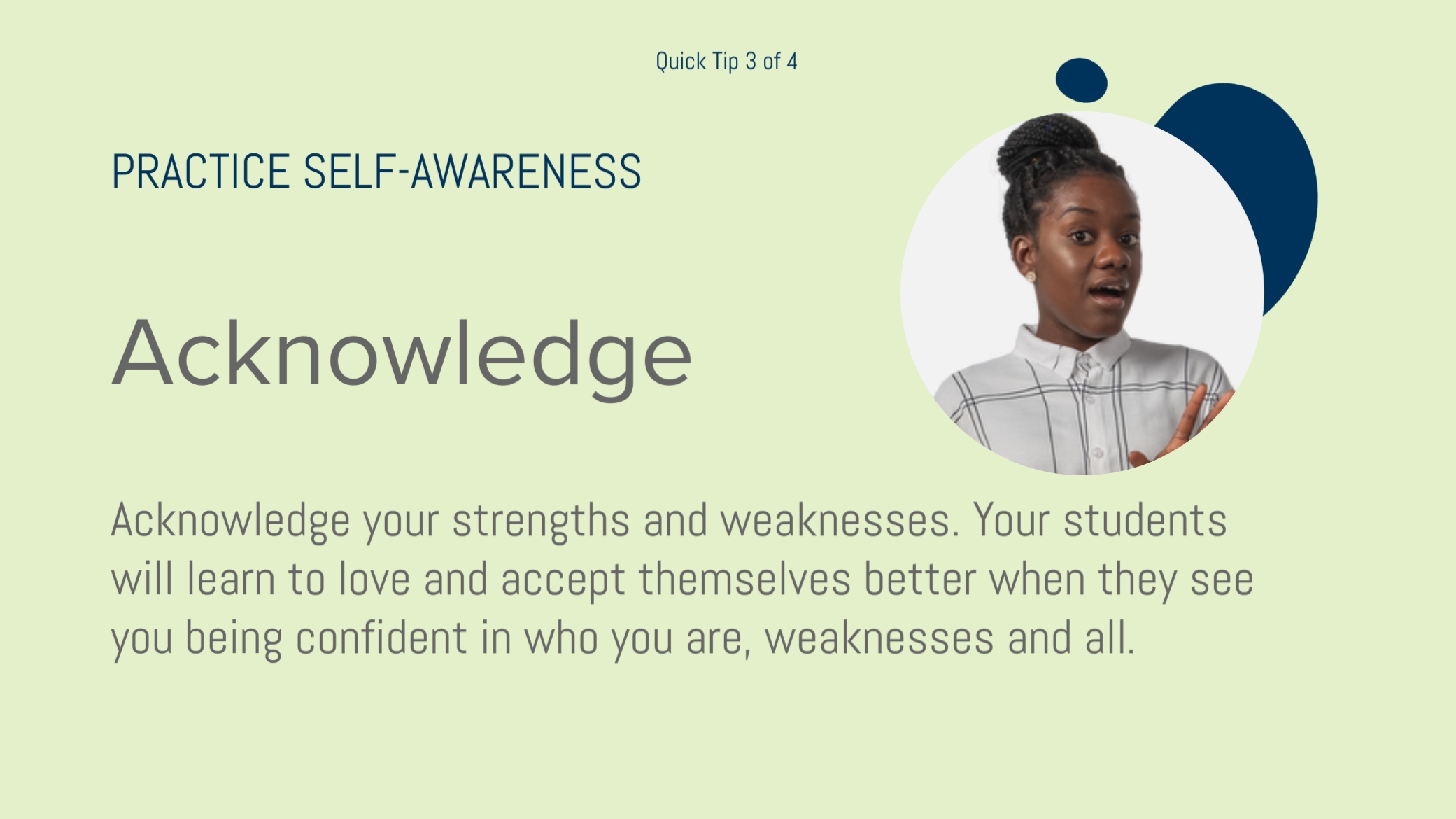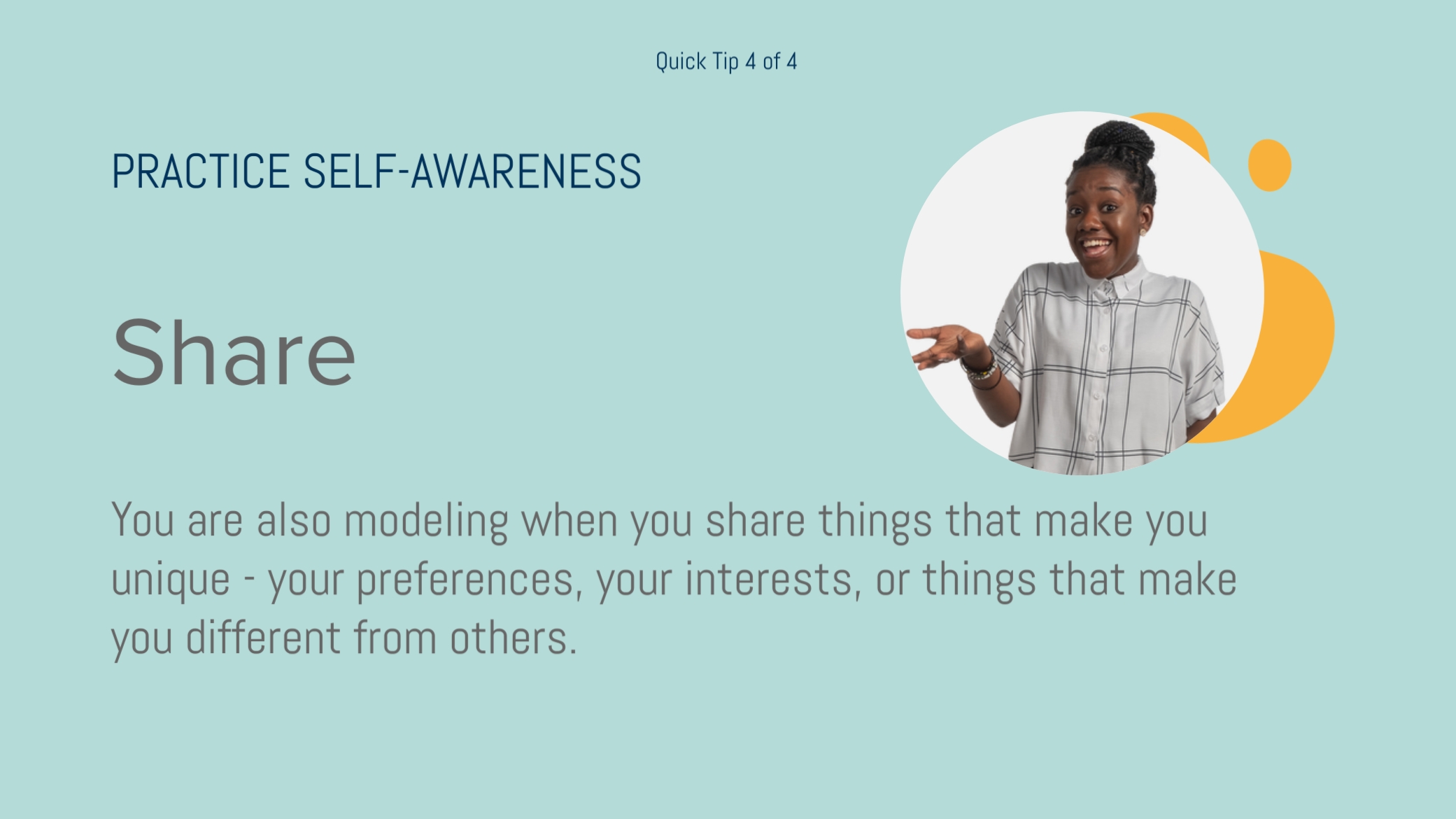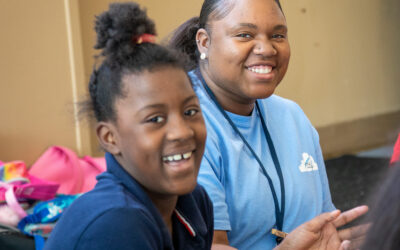Teaching SEL requires us to continuously develop and strengthen our own social-emotional skills as educators. One of the most powerful ways to help your students build their social emotional skills is to model the skills you want them to learn and let your actions do the teaching.
Let’s look at the SEL competency self-awareness to see how it can foster a productive, positive, and less stressful learning environment, and ways you can practice and embed the skill in your own teaching routine.
More Self-Awareness Equals Less Stress and Burnout
Self-Awareness is about understanding your emotions and thoughts and how they influence your behavior. Skills include identifying emotions, self-perception, recognizing strengths, self-confidence, and self-efficacy.
Have you ever felt yourself becoming upset, irritable, or dejected in response to a student’s behavior? You may have run through a few scenarios internally before deciding what to do. If you took the time to self-reflect on your own emotions, accurately perceived your feelings, then expressed those feelings in a constructive, positive way, you were modeling self-awareness.
Maintaining a healthy level of self-awareness in a class full of kids can be challenging. Trust us, we get it! Constantly prioritizing the needs of your students without stopping to breathe or take a break is exhausting and leads to burnout. By taking the time to pause to consider your own emotions and where they are coming from, you can help build better relationships with your students (and yourself!)
4 Quick Tips for Practicing Self-Awareness
Emotional intelligence is a life-long journey of learning and growth. Practicing what you teach means continuous growth in the five SEL competencies. As educators, we can use our own social-emotional skills to make our classes a safe place where students know we value them, and the experiences they bring to school.
